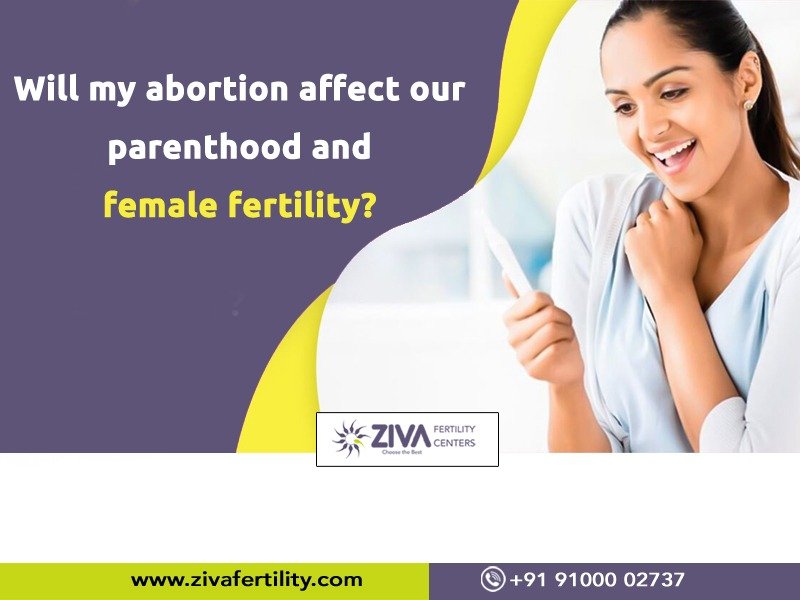When a couple decides to get pregnant, every little thing of their past becomes potential fodder to worry about. A few of the things that couples worry about are:-
- Medical history
- Sexual history
- Male and female partners’ age
- Lifestyle habits
- Earlier miscarriages
- Previous abortions, if any
One hopes that none of their past choices will affect their ability to get pregnant. One of the biggest concerns women have, especially, is “Will my abortion affect our parenthood and female fertility?”
Understanding abortion patterns

In the United States alone, most women who undergo abortions are in their 20s. As per the abortion numbers released by the Centers for Disease Control and Prevention (CDC) for the year 2019, nearly 57% of women were in their 20s. But most of the women who get an abortion in their 20s wish to become a mother at a later time. If women are in their late 30s or 40s, they will be more concerned that their earlier abortions will affect their ability to conceive naturally.
In some cases, women who are already mothers may get an abortion. The most common reason for this is that they do not want any more children or want to wait a few more years before having another child. Guttmacher Institute has noted that 59% of abortions are obtained by people who are already parents.
Does abortion increase the risk of parenthood?
There is a concern that an abortion of the past could affect future pregnancy and lead to miscarriage. Most fears are due to misinformation and misconceptions that falsely link abortion and future conception woes.
But the research shows good news, especially that those who get an abortion can go on to become parents.
Leading OB/GYNs say that if you’ve had an abortion, it should not have an impact on
your future fertility, and it has been proven. “The Safety and Quality of Abortion Care in the United States” report published by the National Academies of Sciences, Engineering, and Medicine found no association between abortion and the inability to get pregnant after a previous abortion.
Complications to keep in mind about abortions

The World Health Organization (WHO) has clear guidelines about the abortion procedures. They are considered a safe medical procedure when performed as per guidelines. The National Academies of Sciences, Engineering, and Medicine report concluded that abortions performed during the first 12 weeks of pregnancy are safe and effective 90% of the time in the United States.
But, since abortion is a surgical procedure especially if done in the second trimester, there might be associated complications.
When women suffer from a rare condition known as Asherman’s syndrome, it could potentially hamper their ability to get pregnant.
In this rare condition, any of the following could happen during an abortion:
- The tissue is scraped off the inside of your uterine walls due to dilation and curettage (D&C)
- An infection of the endometrium which is the mucus membrane that lines the uterus.
- Scar tissue or adhesions can develop and fuse portions of the uterine walls together, effectively shrinking the size of your uterine cavity.
When does conception become difficult after an abortion?
In the following conditions one might face complications due to abortions:
- If tissue was accidentally left behind in the uterus that could cause bleeding or infection
- Abortions at an older age
- Abortion for women with limited ovarian reserve or other relevant medical conditions.
Abortion and female fertility
As per many studies and research conducted there has been no direct impact on woman’s fertility due to an abortion. Whether you have undergone an abortion or not, if you have any condition that could cause infertility, please visit your healthcare provider for a potential fertility assessment. If you are having trouble conceiving after an abortion, please consider the possibility of an undiagnosed fertility issue. Maybe you have Polycystic ovarian syndrome (PCOS) and primary ovarian insufficiency (POI).
Your male partner might also have fertility issues, so it is important to talk to your healthcare provider and get a semen analysis done. Male infertility is also rising due to the modern, fast-paced, hectic lifestyle. Long hours of laptop usage especially by placing on the lap is also causing male infertility due to the rise in scrotum temperature.
How long should you wait to conceive again after an abortion?
If someone has had an abortion, they are most likely to wait a while before thinking about pregnancy.
Leading ZIVA fertility specialists say that the time frame depends on how long the body returns to normal. One has to be both emotionally and physically ready to conceive again.
Please do not ignore what your body and mind are telling you. In a ballpark, it’s good to wait a minimum of one full menstrual cycle after you’ve recovered from an abortion before you actively try to conceive. However, the waiting period is longer for those who had an abortion in their second -trimester, i.e. after seven weeks into pregnancy. In a second-trimester abortion usually, surgery is involved, such as dilation and evacuation (D&E). The time frame includes the time it takes to get to mentally reset.
In Conclusion
Abortion is a decision which is very personal and usually not discussed broadly. But if you decide to proceed, ensure you do it in a safe and healthy environment. Make sure you have a good support system that will help your body and mind bounce back. But also ensure you discuss the future possibilities based on your individual health, with your healthcare provider.
For more information, please visit our website https://zivafertility.com/ or contact us at +91-9100002737, +91-9392834024 or info@zivafertility.com
















